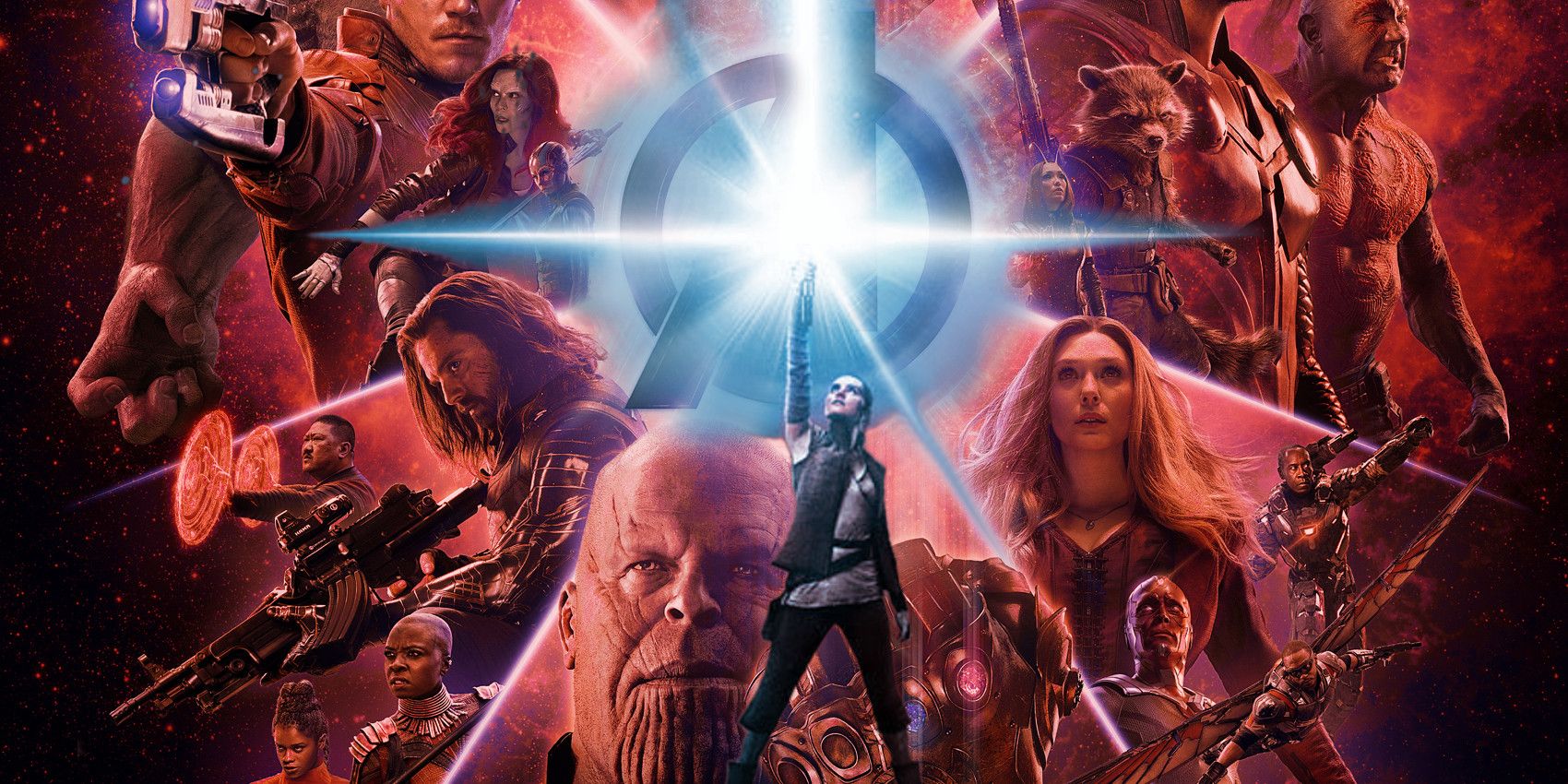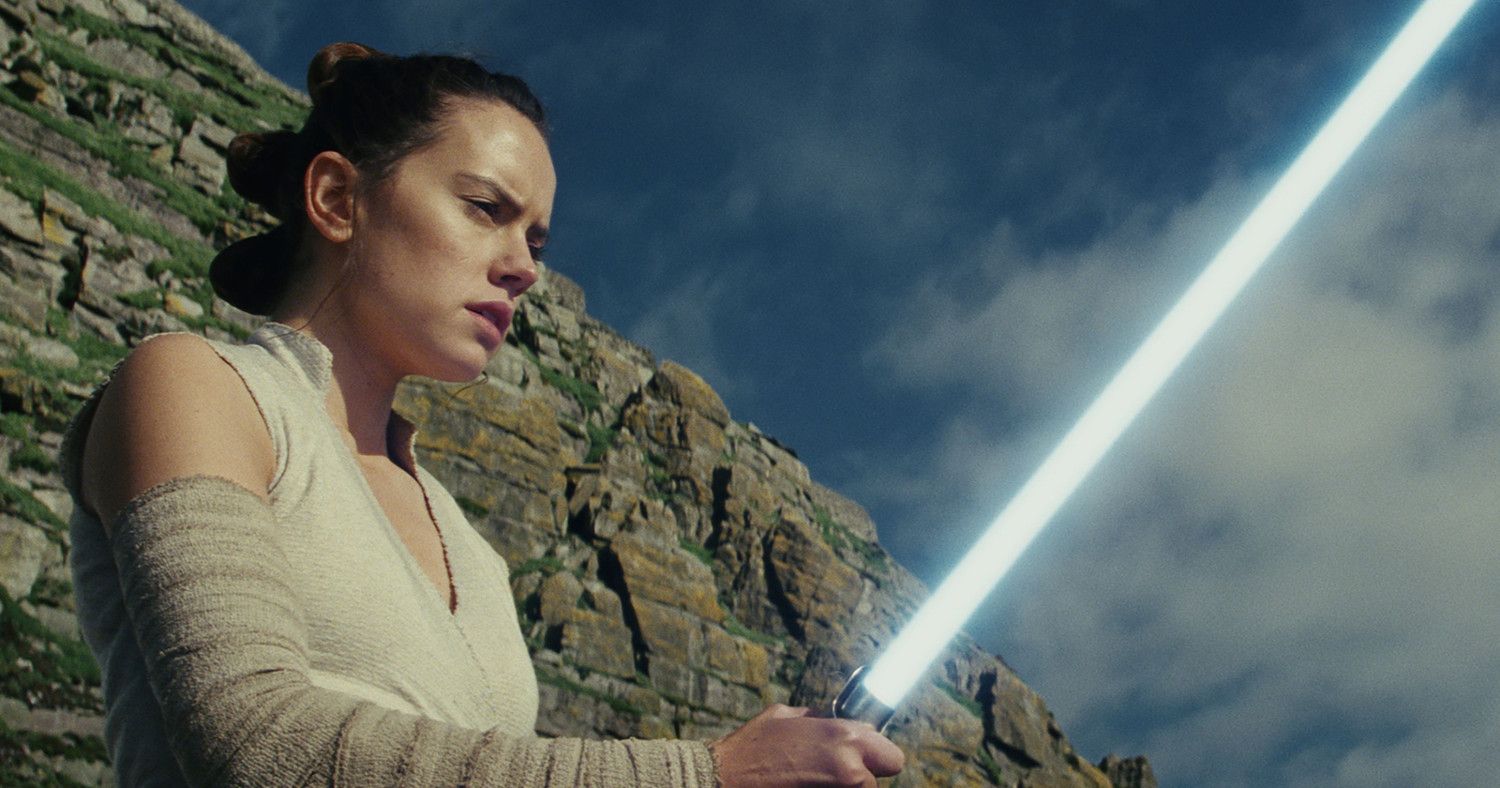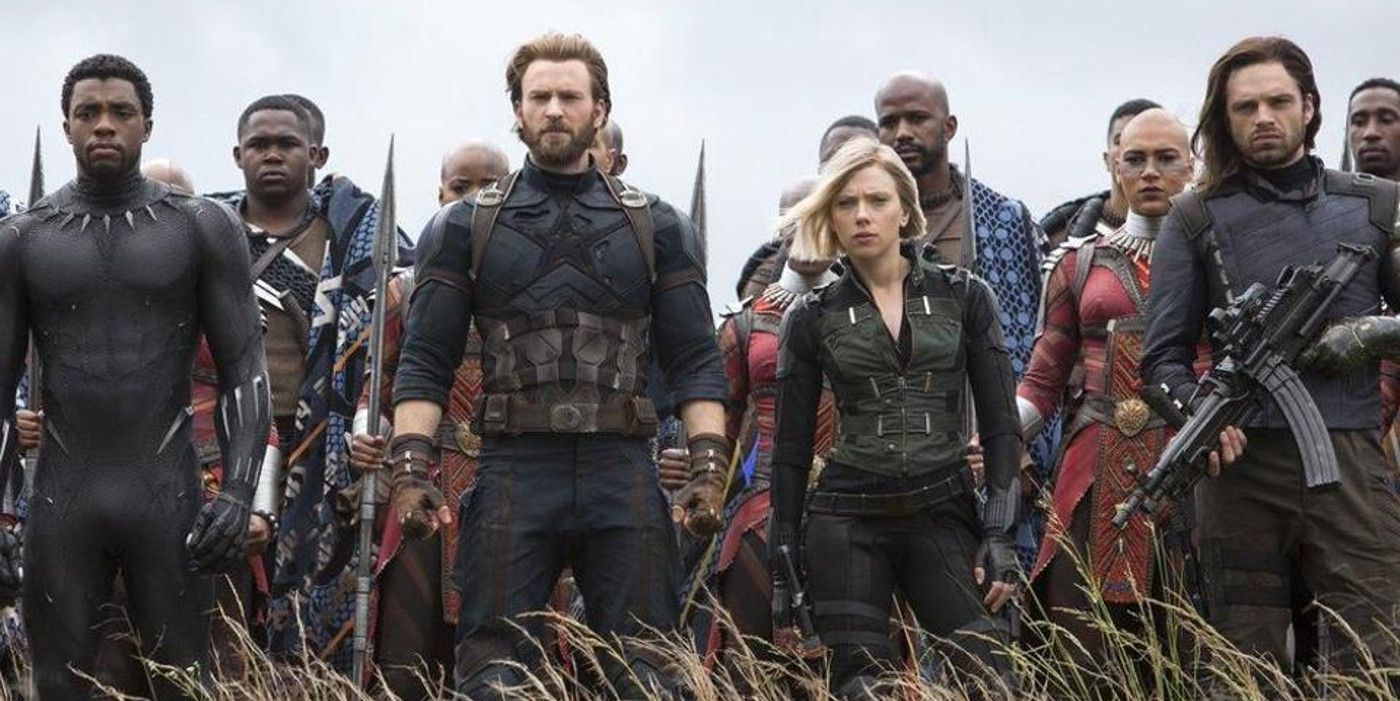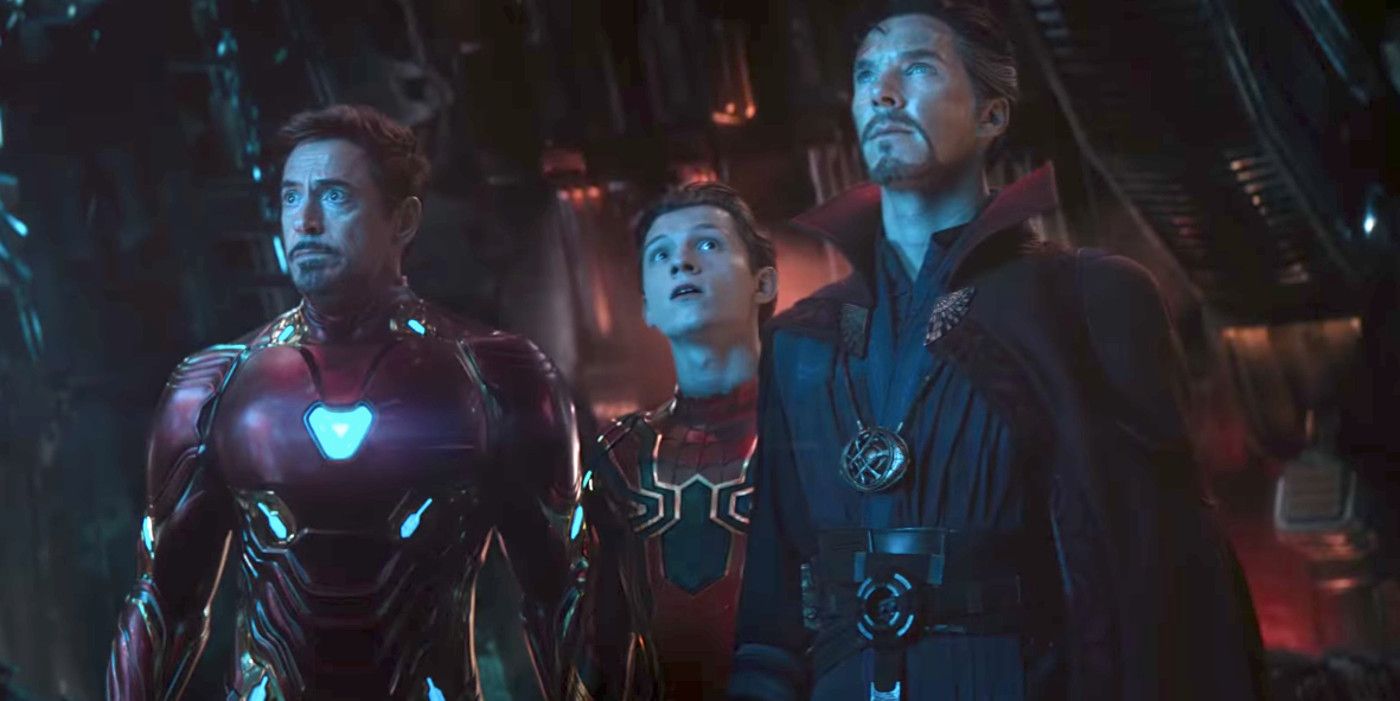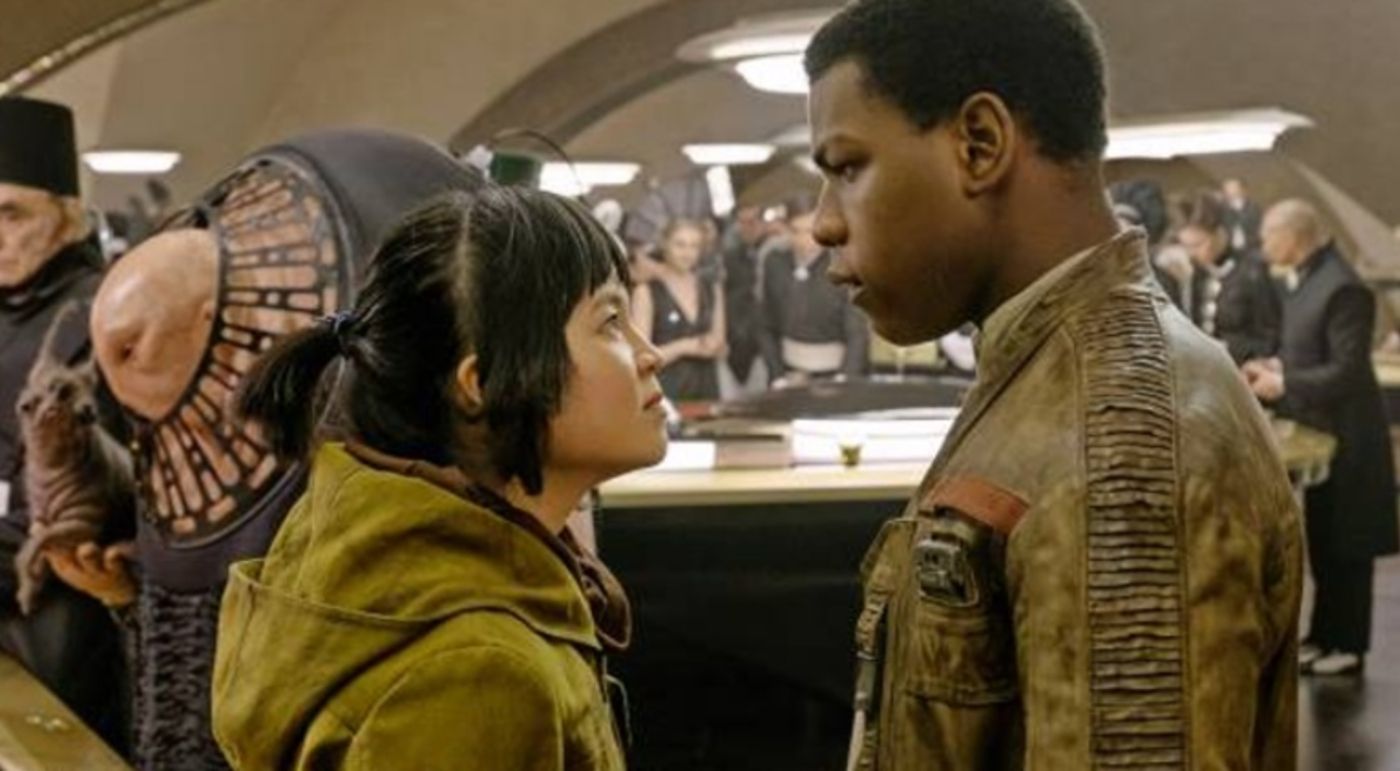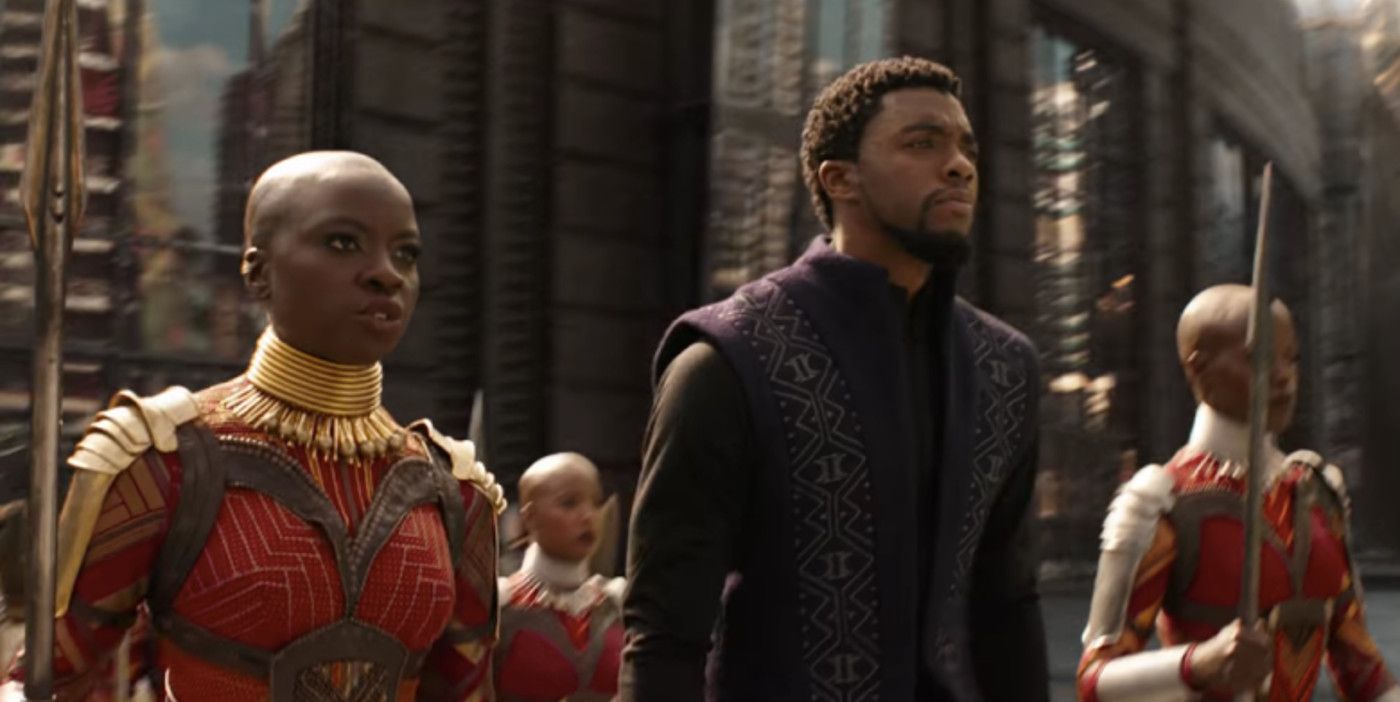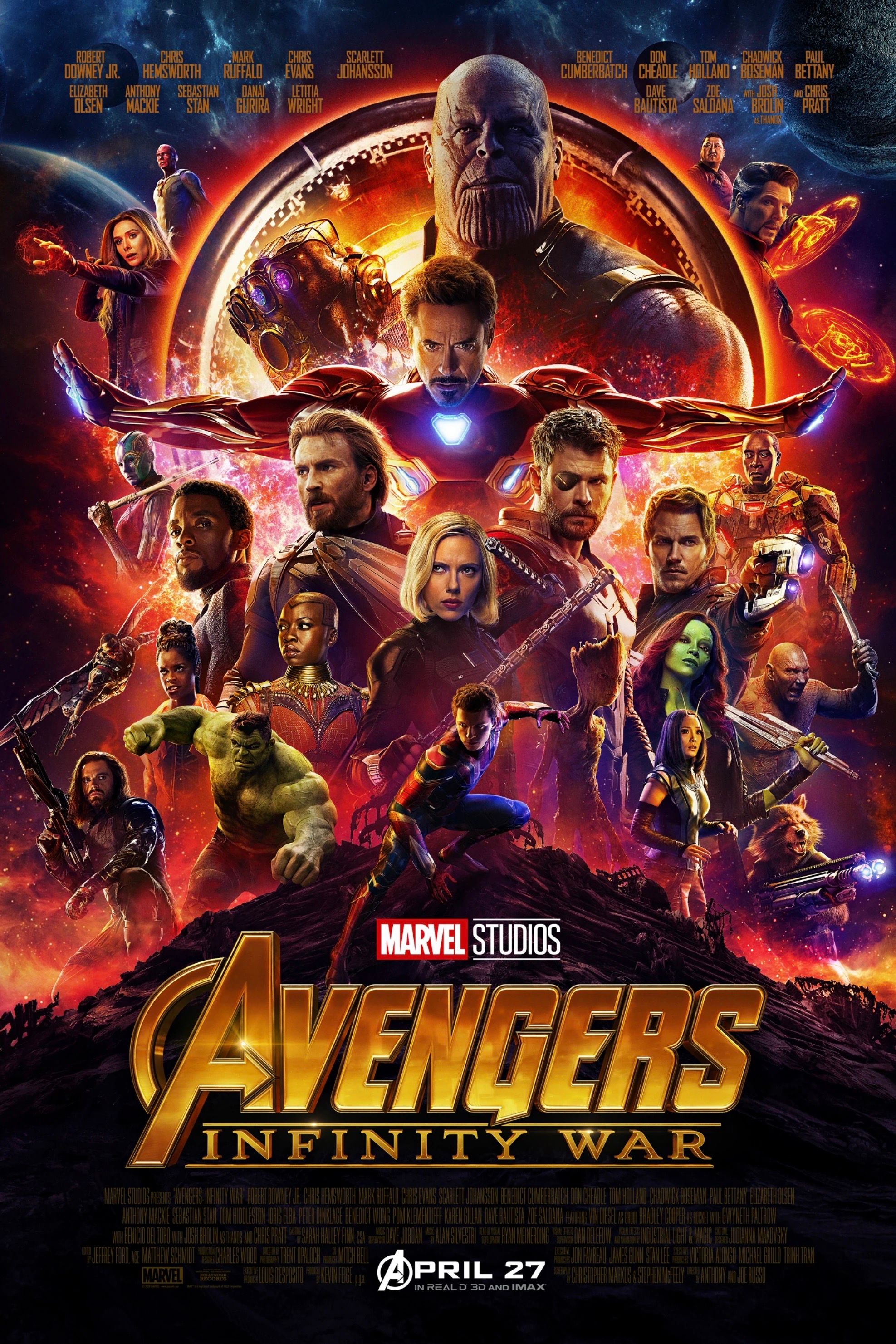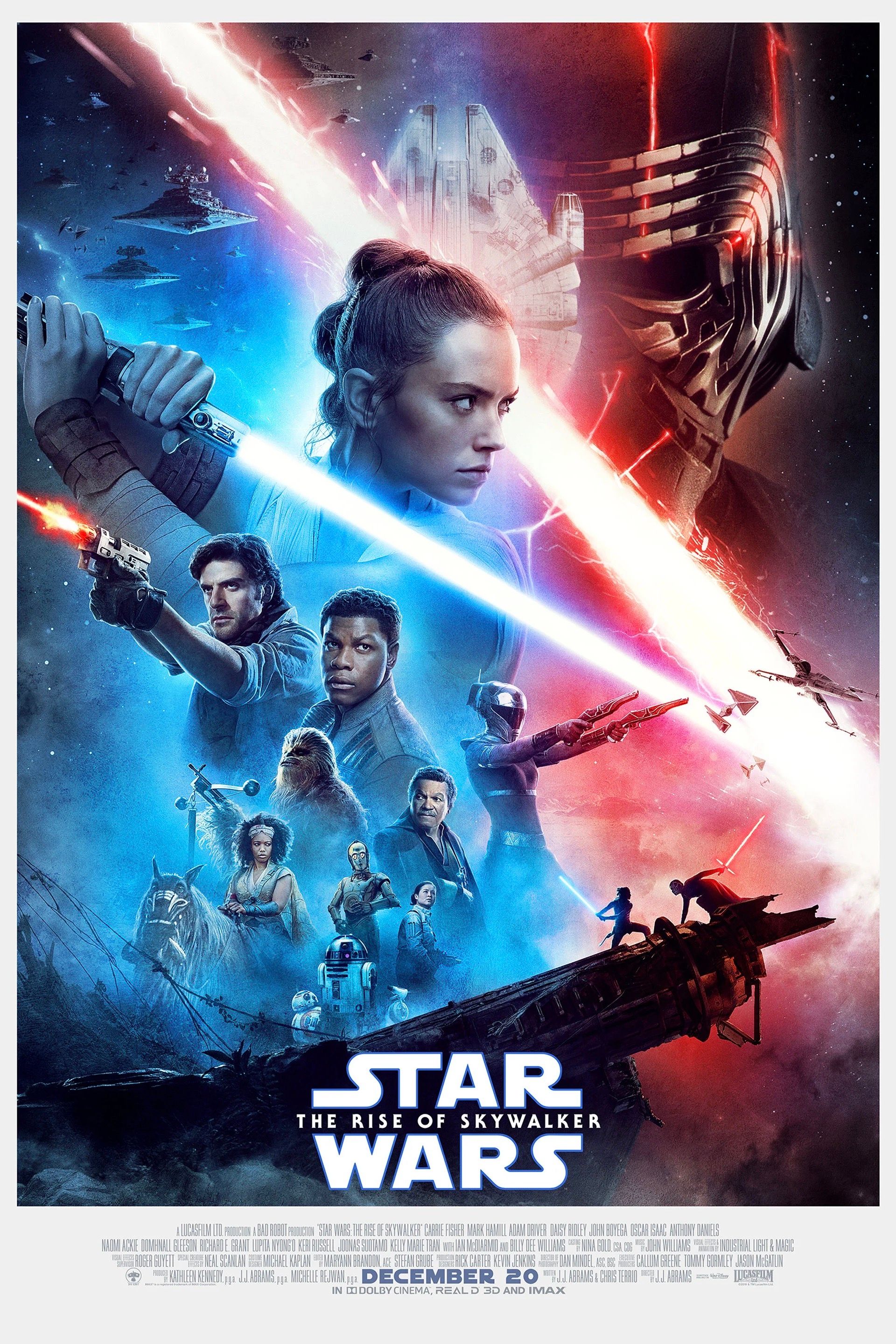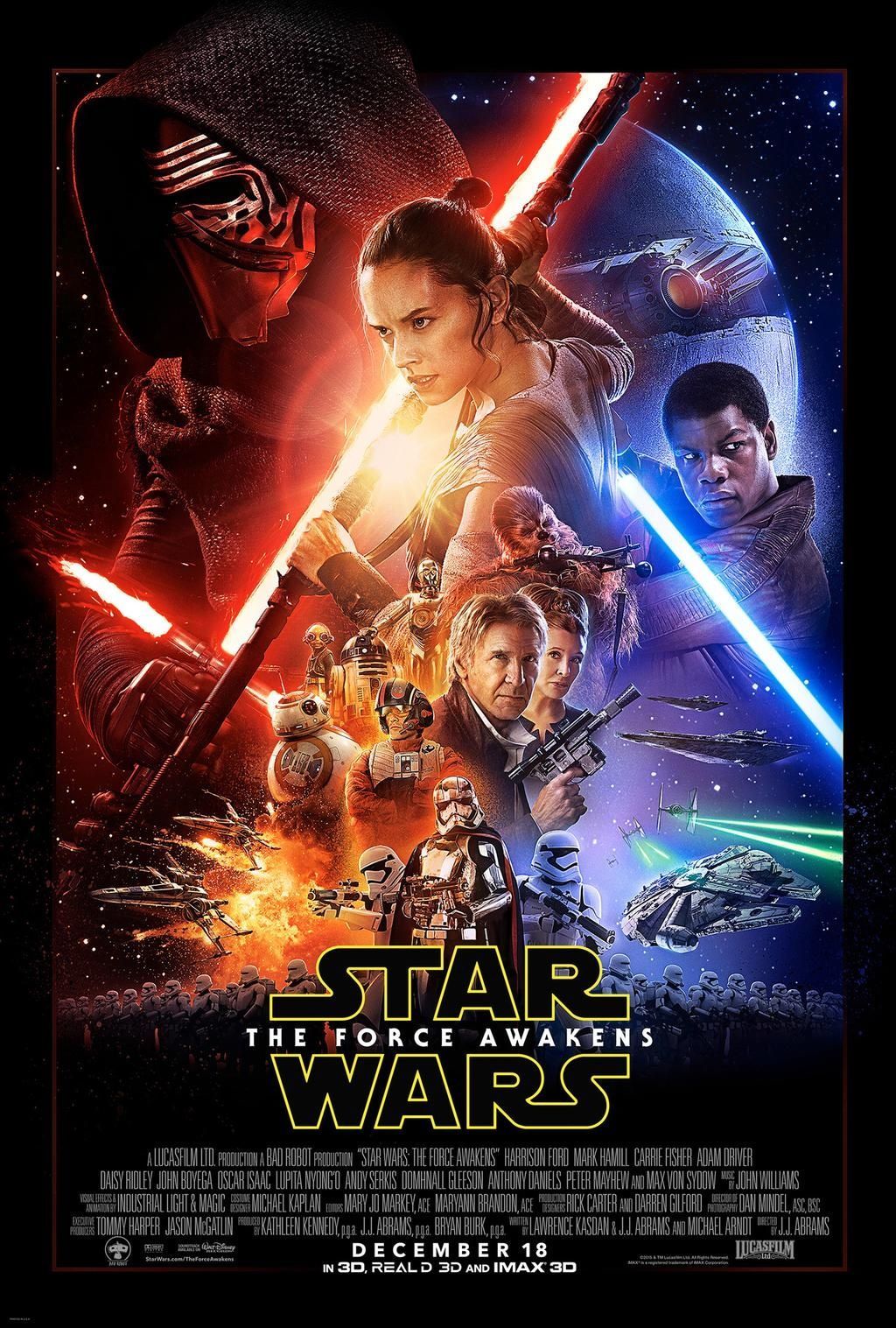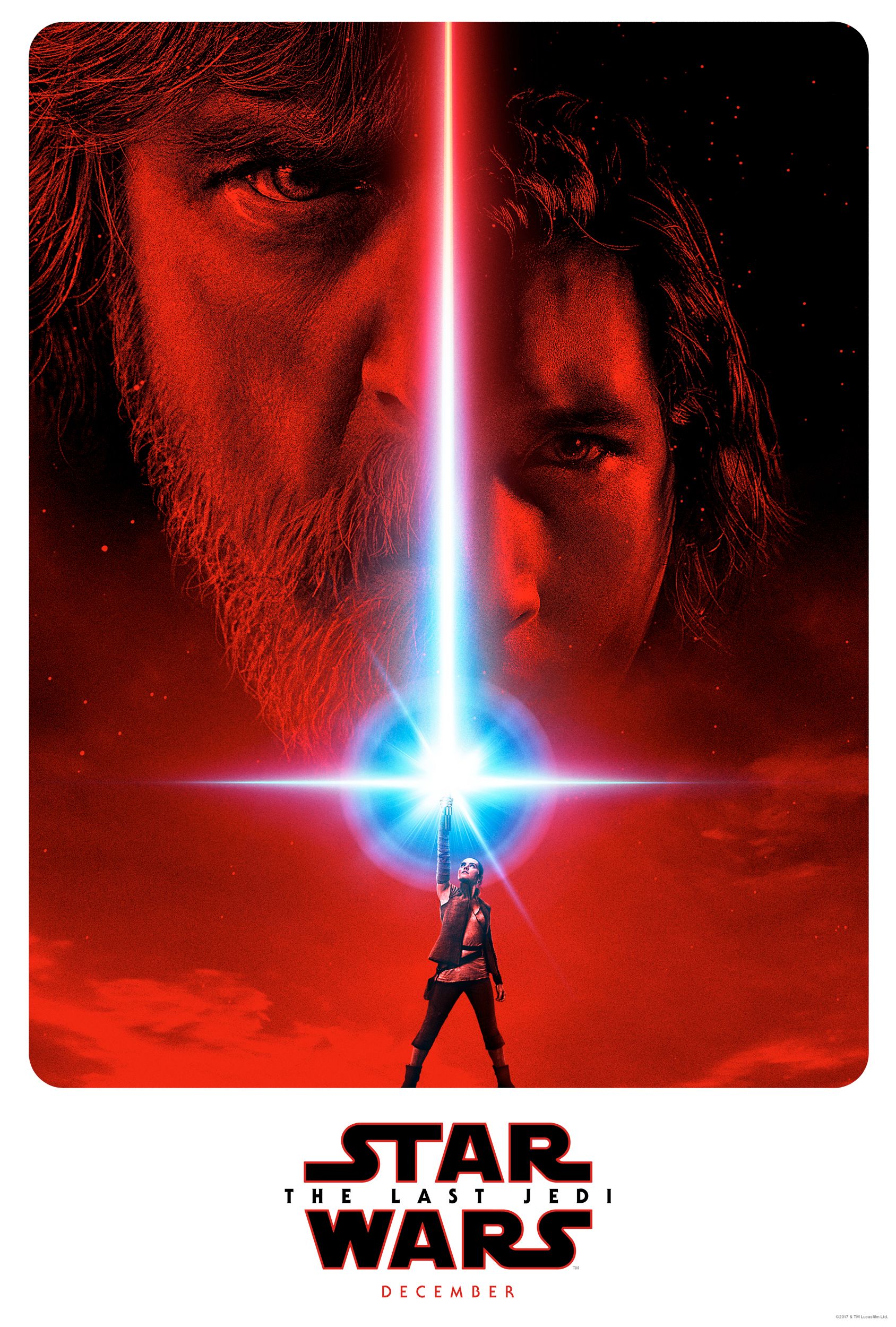Within the last six months two of the most anticipated movies of all time, Star Wars: The Last Jedi, and Avengers: Infinity War, have both divided and united fans. December 2017 had Star Wars: The Last Jedi, the penultimate episode in the generation-spanning Skywalker saga, and Avengers: Infinity War, the penultimate outing of the MCU's central crossover team. Both came with years and years of yearning and excitement, fans all around the world coming together for these global cinematic events. And for one camp, expectations were met and exceeded, while the other was torn right down the middle as a fandom collapsed in on itself in what is one of the more divisive high-profile releases in recent memory, outside of Batman v Superman.
Indeed, Lucasfilm and Marvel Studios' major tentpoles have both endured very different varieties of reaction. Infinity War has been a smash hit attracting re-watch after re-watch as its box office slowly climbs towards that $2 billion mark, while The Last Jedi, which was also a critical and financial hit, drew heated debate in the fan community at every juncture. And all of this comes despite sharing a lot of ground in terms of composition, expectation and build-up, making their incredible contrast a fascinating insight into the ways challenging your audience can go oh-so-right and oh-so-wrong.
- This Page: The Reactions to Star Wars 8 And Avengers 3 Couldn't Be More Different
- Page 2: Were Infinity War And Last Jedi Really Doing The Same Thing?
The Reactions to Star Wars 8 And Avengers 3 Couldn't Be More Different
RELATED: Every Record Infinity War Has Broken
Avengers: Infinity War has had the dream opening and is currently enjoying a best-case-scenario tenure in theaters. First scoring a record-shattering opening weekend at $630 million, the box office receipts just keep on rolling for the Marvel blockbuster. Right now, its returns stand at $1.6 billion, and that's still growing, the magic $2 billion looking very likely, even if only by the end of its run.
As you might imagine, this means the movie has overwhelmingly pleased the majority of its intended audience. Fans of the Marvel Cinematic Universe were on the edge of their seat waiting for this thing to arrive and thankfully it didn't disappoint. The focus on Thanos, the gut-punch ending, all the different strands of the universe finally coming together - everything works beyond expectation to form a film that seemed impossibly big he closer we got to it. Fan theories and speculation were rampant before the movie, and the effort to figure out what happens in Avengers 4 and what kind of send-off Marvel is going to give this cast hasn't slowed.
Such adulation is c. The big difference between fans and reviewers is the contention over stakes and the impermanence of Infinity War's ending. Anyone who follows the MCU intently knows a lot of what happens in Avengers 3 won't stick because there's confirmed sequels and contracts and all the rest of it, which reduces the impact a little. But insofar as a movie that plays to its audience incredibly well, nobody can fault what the movie accomplishes.
RELATED: The Last Jedi Is FULL Of Obscure Star Wars References
Episode VIII's response and returns tell a much different story. It'd be a stretch to say Star Wars: The Last Jedi is a worst-case-scenario for a similarly-regarded sequel-prequel, but the middling reception and venomous reaction from certain parts of the fandom aren't far off. There's no world where making a billion dollars is a disaster, but when you consider the over $2 billion The Force Awakens made and the $1.6 billion and climbing Avengers 3 has, Last Jedi's $1.3 billion all-in take definitely indicates something went amiss.
Fans are deeply divided on The Last Jedi. Some adored the film's thematic depth and emotionally complex narrative, others practically had an allergic reaction to every choice director Rian Johnson made, with a small island of in-betweeners. Episode VIII set the Star Wars fandom on fire, a blaze that continues to rage at every mention of the title or Johnson's name. Yet, The Last Jedi managed to fair genuinely better with critics. Where fans were outraged at The Last Jedi's perceived abuse of the legacy of Star Wars and what Abrams setup in The Force Awakens, critics approved of such swerves, valuing a blockbuster that felt like it had something to say about itself.
Looking at the two, a central contrast is in the way the sequels subvert expectation. Audiences enjoy being excited by the unexpected, but they don't like something that's too unexpected, especially within something they believe they understand every facet of. The Last Jedi felt like a willful rejection of fan theories, an unwritten law of the franchise that went too far from what fans saw as sacrosanct (and differed from the non-canon Legends stories), where Avengers 3 was a deviation, sure, but one that played within the rules. Nothing was so outlandish that it feels spiteful to anyone's investment in the series.
Infinity War is a celebration of its franchise's accomplishments, and The Last Jedi a deconstruction of its franchise's history. For the former, everyone felt invited to the party, hence seeing it so many times, and for the latter, many felt like the series had abandoned them and left them in the cold with the heroes they thought they knew.
Page 2: Were Infinity War And Last Jedi Really Doing The Same Thing?
Were Infinity War And Last Jedi Really Doing The Same Thing?
These two movies are predicated on doing some heavy lifting for a bigger story. They're the setup for a big conflict-resolving final chapter, couched in being the slightly leftfield and unexpected installment. Things go wrong and we see our heroes and villains from new and (hopefully) surprising angles, getting a greater idea of what's really at stake and who stands for what. They're both bold pictures, of that there is no doubt, but the methods in which they deliver their shocking twists and big reveals are very different.
Infinity War is a wonder of narrative engineering, 18 films brought together into one massive blockbuster that somehow stands on its own. Whatever you may think of the Joe and Anthony Russo's directing, they deserve credit for Avengers 3 not being a complete mess. Very little of what the film does is explicitly new or surprising, but therein lies the accomplishment. It didn't need to do anything special, it just had to bring all these disparate parts and tones into one story while keeping the contrivance down. Most of the heroes' time on-screen is just them all meeting up, and that's all that was needed to feel exciting – the actual big story is Thanos and his plans was the big hook that needed the appropriate emphasis.
RELATED: No, Luke Skywalker Didn't Change Personality For The Last Jedi
The Last Jedi is telling a radically different story. It's the second-to-last chapter of a saga now over 40 years old that many fans have waited generations to see. There's a much greater reliance on bringing something new to the table and pushing forward this epic narrative into its big finale in an engaging, thoughtful way that balances canon with new perspective. And instead of trying to walk a tight-rope between fan perception and being new and innovative, The Last Jedi just favored the latter, doing things nobody expected and interrogating lots of the historical context the series is steeped in.
Rey's parents being nobodies, killing Snoke, Poe getting Vice Admiral Holdo wrong – these are plot-points that refute how we think Star Wars stories go. In Force Awakens, Abrams set a precedence for worshiping the Original Trilogy that Johnson cast aside to tell a tale that was all this trilogy's own. Last Jedi's plot follows the protagonists being wrong and failing at just about every turn before they survive by the skin of their teeth, hope exclusively lying in the hands of the new cast, who're heralding a more diverse future for the franchise.
RELATED: There Should Be A Time Jump Between Avengers 3 and 4
There's a strong argument that nothing in the new Avengers is as shocking bar perhaps Red Skull's return. A lot of the broad strokes like Vision's death and there being two distinctive plot-lines following Stark and Rogers weren't unanticipated. The employment of such a harrowing ending is the film's most unforeseen aspect, especially watching so many heroes fade away into non-existence – far more than that of Last Jedi.
But a key difference is that the MCU retains the ability to walk back any major death or plotting it wants to. That's literally the power of one of the central plot devices. And if the Infinity Gauntlet functions anything like the comics, the lives it erases from our existence can be restored using the same magic. In Star Wars when someone dies, they are dead. So when Last Jedi kills Snoke and Luke, those become immovable points in the timeline. And when the continuity is that sincere, the how and why can be very contentious, as evidenced by the severe beliefs held either way for both Snoke and Luke.
Fans Were Ready For Infinity War
RELATED: Every Phase of the MCU Has Been Better Than the Last
Being candid about it, Episode VIII had a near-impossible job. If any series is loved too intensely its Star Wars, and Last Jedi had to be the middle child in the property's big return. There's just nothing that could wholly match the hype that worked for everyone. The villain for the third Avengers was revealed back in 2012 and the rest of the foundations were built across the rest of the down films since then. Audiences knew what Infinity War was going to do and how it was going to do it. Thanos is going to come in, he's going to gather the Infinity Stones, and the ending will feed directly into Avengers 4. It's the basic plot of the Mad Titan's introduction in the comics from 1994. Despite the more esoteric fan theories, people knew what was coming and the general manner it'd be delivered.
Episode VIII could have been more predictable, but instead, Rian Johnson took it to places audiences really weren't prepared for. Luke as an emotionally cold exile who actively resists getting involved and Kylo revealing Rey's heritage defy traditional Star Wars and thus defied fans. People felt some aspects were contrarian for the sake of it, despite the story being drafted before The Force Awakens' release and thus before speculation on what that film setup really became a thing. Whatever the case, neither this nor Infinity War have give their follow-ups next year an easy job, that's for sure.

